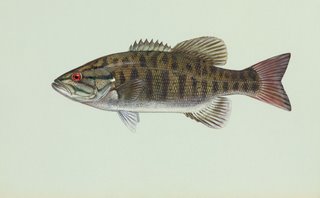 There have been several stories in the news the past few weeks about walls, trenches, moats, and land mines being used to "secure" the borders of various cities and countries.
There have been several stories in the news the past few weeks about walls, trenches, moats, and land mines being used to "secure" the borders of various cities and countries.Besides the issue of whether or not these barriers actually would provided any real security, or what social programs would be sacrificed in order to fund these costly endeavors, I think it's important to understand how such methods at social control run counter to the overall trend toward connectedness.
We entered a "globalized" world with the advent of the microchip and its application to communication and transportation technologies. The world really has become a smaller place in the past decades. There are downsides to this connectedness that we've all seen examples of, especially since we're still in the transitional stages of that economic and social shift.
From invasive foreign animal and plant species impacting local ecosystems, to the threat of flu pandemics, to the outsourcing of jobs to low-wage nations, the negative effects of the changes are visible to almost everyone. And then there is the development of dispersed terrorist networks, which has lead to the reactionary impulse to wall ourselves in and keep out foreign threats.
What is interesting is that while governments push for these physical barriers to stop the flow of people across borders, they work even harder for the corporations to knock down the social and technological barriers that hinder the flow of capital across borders. As long as globalization is controled from above, and organized to benefit the super rich, it will lead to constant tension, confrontation and violent clashes. That path will lead not toward social connectedness and wider democracy, but to strict social control and fascism.
The potential benefits of a global society organized to benefit all of the world's people are great. The imagination reels at the wonderful possibilities present-day technologies create. News and knowledge can traverse the globe in the blink of an eye. Social collaboration is possible on a scale never before dreamed. Social capital can be pooled to solve the most entrenched problems. But none of this will take place until there is a majore re-organization of who controls the technologies and the governing bodies that administer them.
These stories of barriers reminded me of Octavia Butler's novel Parable of the Sower and its depiction of a decaying society in the near future where communities are forced to wall themselves off in order to try to survive in a world where government has abdicated all responsibility to its citizens. That novel may prove prophetic if society continues down its current road.
Erecting walls is a movement backwards, to the times when a Great Wall of China was needed to keep out the invading hordes. Living things don't move backwards and survive. We need to move forward, toward true connectedness that benefits everyone.
Here are some links to recent stories on the push for barriers:
Latest chapter in silly saga of border wall
A wall on the U.S.-Mexico border is meant to secure only one thing: the re-election of members of Congress.
“Berlin Wall” Across U.S.-Mexico Border Will Destroy Endangered Species
Center for Biological Diversity Calls on Congress to Protect Sensitive Border Lands and Wildlife
Mexico's Calderon Rips Border Wall Plan
Israel's West Bank Wall forces thousands of Palestinians out of their homes - report
No writing on the wall
"... After inquiring, he learned it was a graffiti repellent spray apparently developed in satellite labs in the United States. Mizrahi was shocked: is the State of Israel going to spend money spraying graffiti repellent for use in outer space on the giant concrete wall? Is the graffiti a security threat? ..."
Baghdad to dig 50-mile trench to stem gruesome wave of torture and murder
EU wants quick military success in southern Afghanistan
" ... Vendrell said there is no way of sealing off the Afghan-Pakistani border unless Musharraf?s idea of mining the border or building a fence along it. ..."
